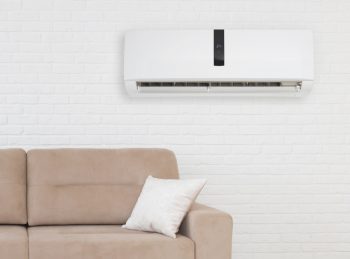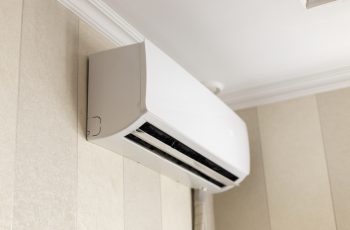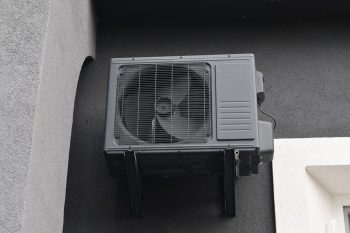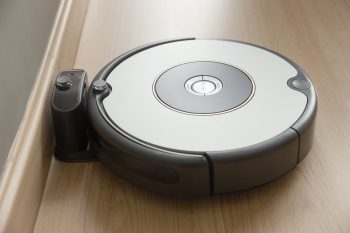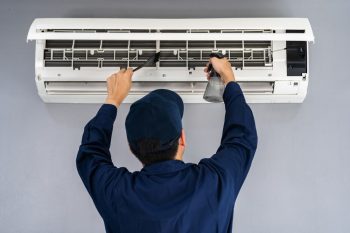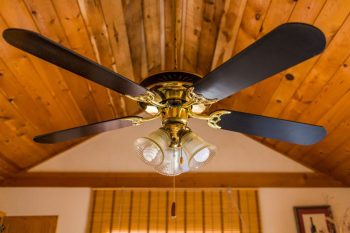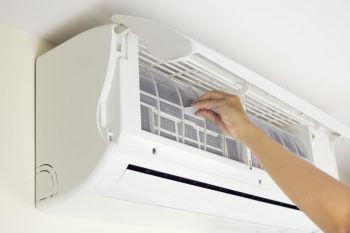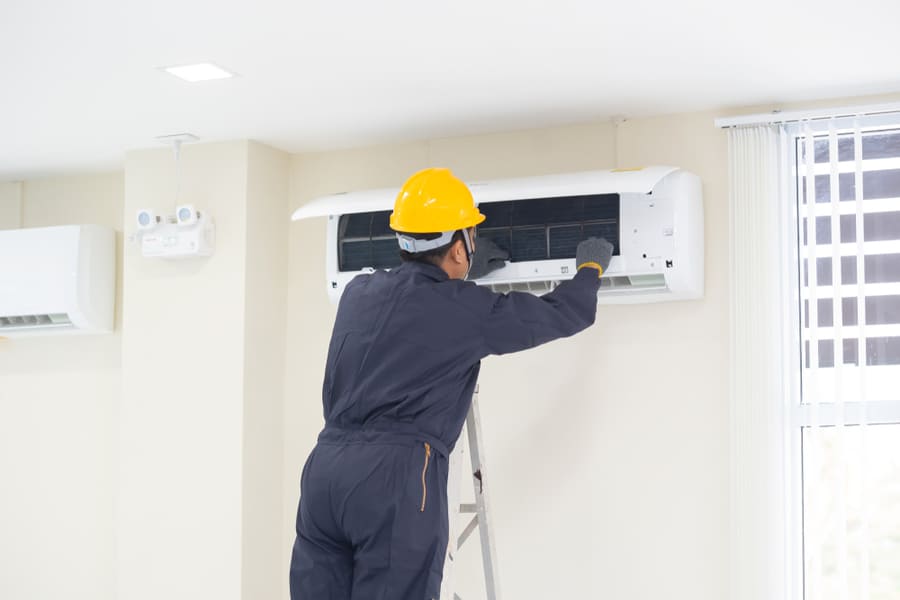
Statistics show that nearly 90% of US households have air conditioners. Air conditioners are considered essential appliance that provides cool comfort regardless of outdoor temperatures.
Available in various models and types, air conditioning units can efficiently cool rooms and homes of all sizes.
Keep in mind, though, that air conditioners are not one-size-fits-all. The efficiency of your AC strongly relies on how well you match it to your space.
How can you tell if your AC unit is too small for your house? Here are the tell-tale signs.
- Depending on the model and specifications, an air conditioner’s cooling capacity will be limited.
- Using an air conditioner in an oversized room can result in poor performance, overwork, high humidity levels, and expensive electricity bills.
- Before buying an air conditioner, consult a professional to identify the right unit for your space.
- You can see if your AC is the right size for your space by calculating your home’s BTU requirements using the simple formula at the end of this article.
Air conditioners come with ratings that let you know their cooling capacity. These can be indicated in British thermal unit (BTU) or horsepower (HP.) Unfortunately, some people overlook these ratings when buying an air conditioner, leaving them with a unit that’s not strong enough to cool their space.
5 Signs Your AC Unit Is Too Small for Your House
1. Inefficient Cooling Performance
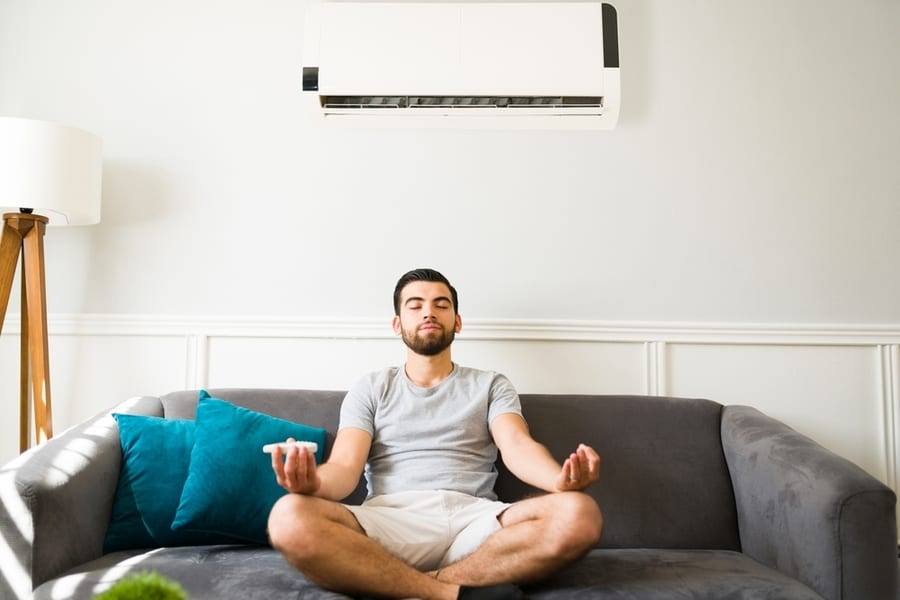
The first and most obvious sign would be that your air conditioner can’t cool your home.
Even if you set your thermostat to a much lower setting, your air conditioner will continue to struggle to cool your space. As a result, your home always feels warm and humid.
Inefficient cooling performance can also come from inconsistent temperatures using a centralized air conditioner. This means your home might feel colder in some spots compared to others.
Usually, rooms closer to the air conditioner are the coolest, while distant rooms feel hardly cool.
2. Non-Stop Compressor Functioning
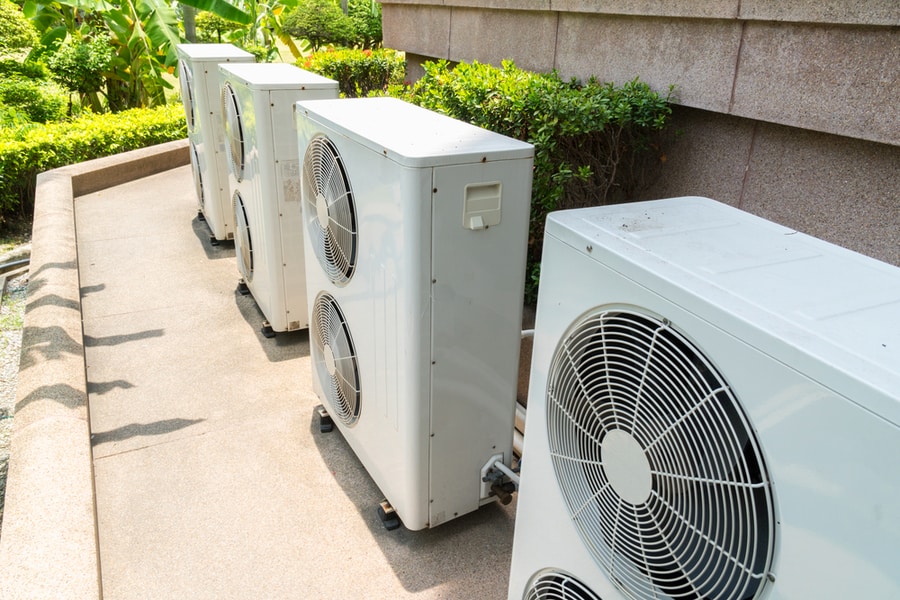
Air conditioners work by pulling warm air out of your house. When you turn it on, you’ll probably hear its compressor humming as it pumps refrigerant throughout the unit.
But when the AC achieves your desired temperature (as indicated on the thermostat), you might notice it will quiet down.
Since your room is already cool enough, the compressor takes a rest and enters idle mode.
If your unit detects that your room’s temperature has risen above the thermostat, it will bring the compressor back to life to restore the ideal climate.
When your air conditioner is too small for your home or room, it will not allow the compressor to enter idle mode.
Because the AC can’t achieve your desired thermostat, it will keep the compressor active to reach your set temperature.
3. High Humidity Levels

One of the functions of your air conditioner is to collect moisture from your air. As it pulls the warmth out of your house, it brings any humidity it can collect.
This moisture is then deposited as condensate, which the air conditioner discards outside the unit.
When your air conditioner is the wrong size for your home, you’ll notice that humidity levels in your space will remain relatively high.
If you’ve got a hygrometer, a humidity reading of over 50% indicates that your home’s humidity levels are too high.
4. Expensive Electricity Bills
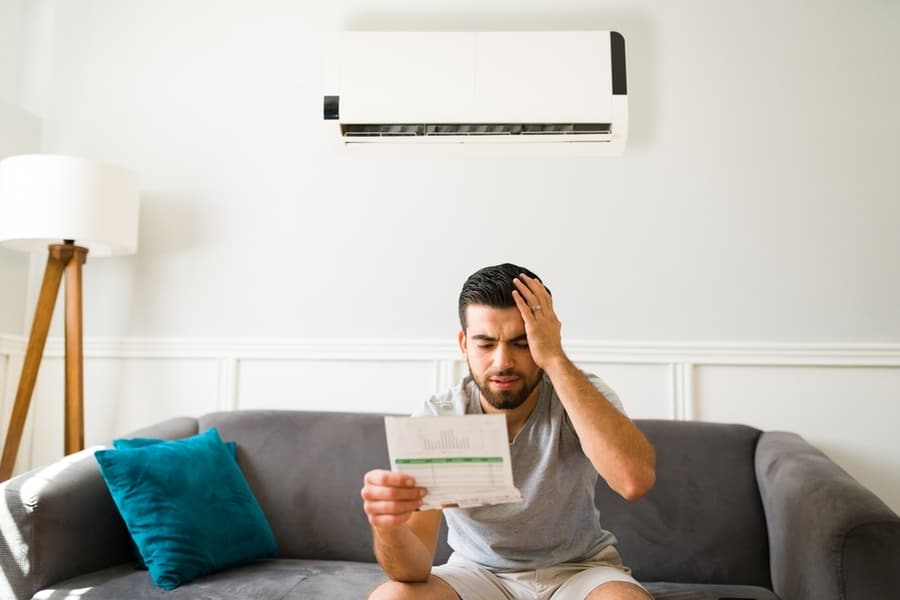
An air conditioner that’s too small for the house it’s in will work harder to lower your indoor climate. As a result, the unit will consume more energy to perform its task.
According to some sources, your electricity bill may be up to 50% higher than usual if your home’s air conditioner is the wrong size.
To test, try turning off your air conditioner more often throughout a billing cycle or keep it turned off altogether.
If your electricity bill normalizes after the test, you can be sure your air conditioner is the culprit.
5. Constant Repairs
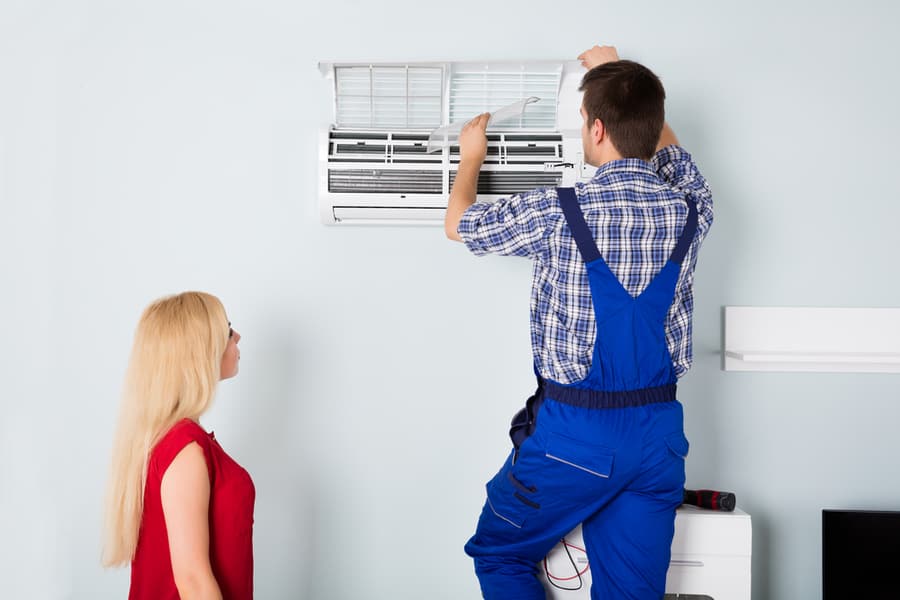
There’s a reason why manufacturers designate their air conditioner’s in terms of cooling capacity — because these units have their limits. Putting an air conditioner in a too-big space will place extreme abuse on the appliance.
Over time, the overworked machine will succumb more quickly to wear and tear. So you must have your air conditioner serviced and repaired more frequently.
How To Calculate the Right Air Conditioner Size
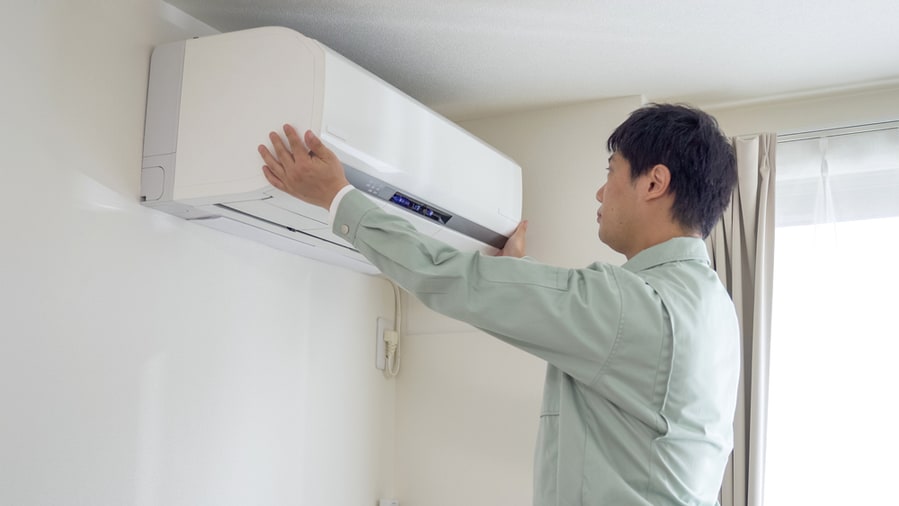
If you still have your air conditioner’s manual, then you should be able to find its BTU or HP rating. Here’s how to tell if it’s the right size for your home based on its rating:
For centralized air conditioners:
- Multiply the length of your space by the width (in feet).
- Multiply the answer you get in the first step by 25.
- The resulting number will be the minimum BTU rating your AC should have to efficiently cool your space.
- If your AC’s BTU rating is lower than the answer you get, you can conclude it’s not the right size.
For air conditioners used in single rooms:
- 200 sqft or less – 1.5 HP
- 201 to 325 sqft – 2 HP
Takeaway
Is your air conditioner the right size for your house? We often forget to consider the size of our space before buying an air conditioner, leading to poor performance, expensive bills, and constant repairs.
So if you find your AC is the wrong size, don’t hesitate to switch. Not only will it keep your home cool, but it should also save you from the expensive costs associated with an undersized unit.
Frequently Asked Questions
How Do I Maximize My AC’s Cooling Performance?
You can do some things to help your air conditioner function more effectively. Aside from making sure it’s the right strength for the size of your space, here are a few other things you can do:
- Close all doors, windows, and openings that could cause cold air to escape.
- Check your home’s insulation.
- Keep your AC unit clean.
- Provide shade for the external AC unit.
- Minimize the use of heat-producing electronics and appliances when your AC is running.
What Is the Ideal Thermostat Setting for an Air Conditioner?
Everyone has their preferences regarding how cold they want their space to be.
But if you’re interested in balancing air conditioner performance and energy savings, experts recommend sticking to a thermostat of 78°F.

